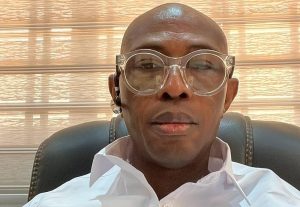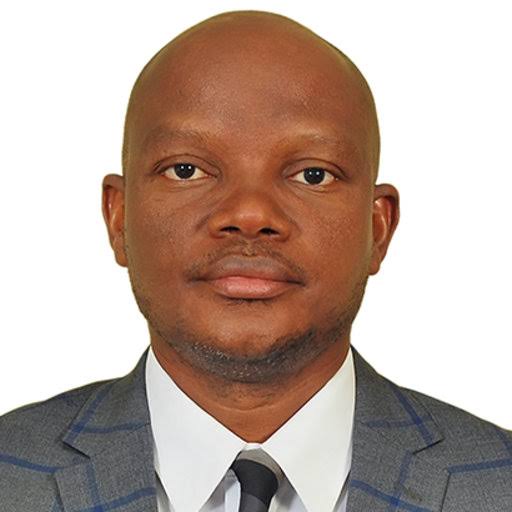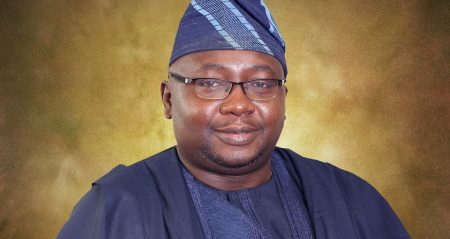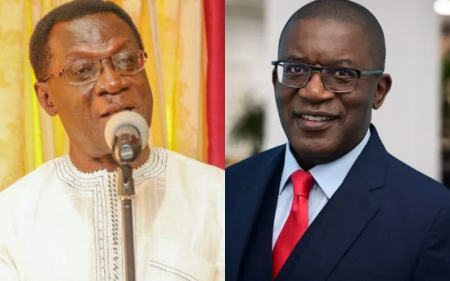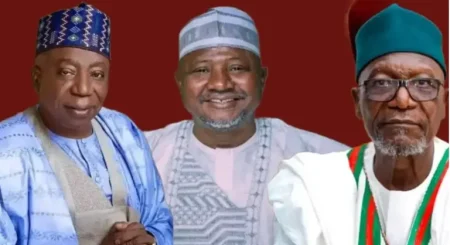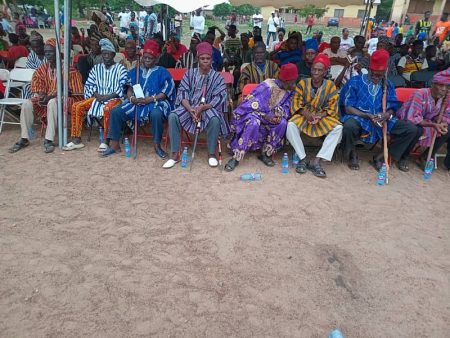The Academic Staff Union of Universities (ASUU), a Nigerian trade union representing academic staff in Nigerian universities, has elected Professor Chris Piwuna as its new president. Prof. Piwuna, a consultant psychiatrist at the University of Jos Teaching Hospital and Dean of Student Affairs at the University of Jos, succeeds Professor Victor Osodeke, a soil scientist from Michael Okpara University of Agriculture, Umudike. This leadership transition occurred during ASUU’s 23rd National Delegates Congress held in Benin City, Edo State. The election saw Prof. Piwuna vying for the presidency against Prof. Adamu Babayo from Abubakar Tafawa Balewa University, Bauchi, ultimately culminating in Prof. Piwuna’s victory. This change in leadership comes at a critical juncture for the union, amidst ongoing challenges within the Nigerian university system.
Prof. Piwuna inherits the leadership of ASUU at a time of considerable tension and uncertainty. The union has historically played a significant role in advocating for improved working conditions, academic freedom, and adequate funding for Nigerian universities. His presidency begins against the backdrop of unresolved issues, including the contentious distribution of earned academic allowances recently released by the Federal Government. This matter, coupled with the persistent problem of brain drain within the academic sector, poses significant challenges for the incoming president. These issues, if not addressed effectively, could potentially lead to further industrial action, disrupting the academic calendar and impacting students’ education. The new president will have to navigate these complex issues strategically, engaging with the government and other stakeholders to find lasting solutions.
The election of a new president signifies a potential shift in ASUU’s strategic direction. While the union’s core objectives of protecting the welfare of its members and upholding academic standards remain constant, the approach taken by the new leadership could vary. Prof. Piwuna’s background as a consultant psychiatrist and Dean of Student Affairs hints at a possible emphasis on the broader well-being of the university community, encompassing both staff and students. His experience in these roles may influence his approach to negotiations and conflict resolution, potentially fostering a more collaborative approach. The expectation is that he will leverage his experience and networks within the academic and medical fields to advance the cause of Nigerian universities and address the challenges faced by both academic staff and students.
The challenges facing Prof. Piwuna are multifaceted and deeply rooted in the chronic underfunding and systemic issues that plague the Nigerian education sector. The brain drain phenomenon, where skilled academics are lured away to more attractive opportunities abroad, represents a significant loss of intellectual capital for Nigeria. This exodus is fueled by factors such as inadequate remuneration, poor research infrastructure, and a lack of professional development opportunities. Addressing these underlying issues will require a concerted effort from both the government and the university system. Furthermore, the controversy surrounding the earned academic allowances underscores the need for transparent and equitable mechanisms for distributing resources within the university system. These issues, coupled with the need to maintain academic standards and ensure quality education for Nigerian students, form a substantial part of the new president’s agenda.
The upcoming months will be crucial for the new ASUU leadership. Prof. Piwuna will need to build consensus within the union, engaging with various factions and addressing their concerns. He will also need to establish a constructive dialogue with the government, advocating for increased funding and policy changes that support the revitalization of the university system. This will require strong negotiation skills, political acumen, and the ability to build alliances with other stakeholders, including student unions and civil society organizations. The success of his tenure will largely depend on his ability to navigate these complex relationships and effectively represent the interests of ASUU members while working towards a sustainable future for Nigerian universities.
The transition in ASUU leadership comes at a pivotal moment for Nigerian higher education. The decisions made in the coming months will have a significant impact on the future of universities in the country. The new president’s leadership style, his ability to engage with the government and other stakeholders, and his strategic vision for ASUU will play a crucial role in shaping the outcomes. The expectation is that Prof. Piwuna will bring a new perspective and energy to the role, working to address the pressing challenges facing the university system and ensuring a brighter future for Nigerian academics and students alike. His success will depend on his capacity to build bridges, foster understanding, and champion the cause of quality education in Nigeria.




